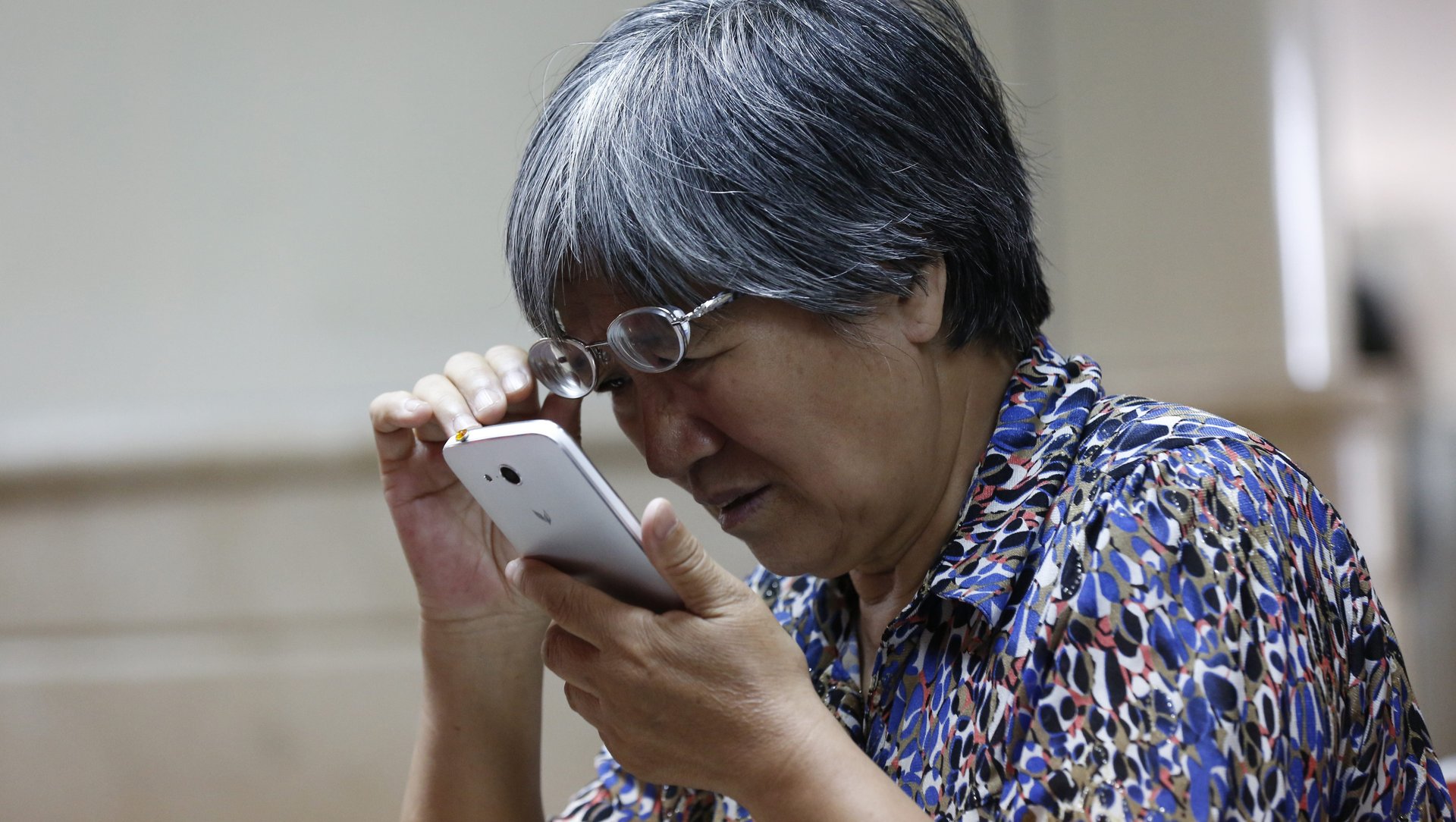China’s latest pyramid scheme uses WeChat, fake royal money, and fear of foreigners to rob seniors
Over centuries, China’s once-powerful royal families secretly transferred their assets, worth trillions of dollars, overseas. Now “the great cause of the nation” is to repatriate that money, in order to combat the country’s foreign enemies and realize president Xi Jinping’s China Dream. All Chinese patriots need to do is pay a membership fee to help.


Over centuries, China’s once-powerful royal families secretly transferred their assets, worth trillions of dollars, overseas. Now “the great cause of the nation” is to repatriate that money, in order to combat the country’s foreign enemies and realize president Xi Jinping’s China Dream. All Chinese patriots need to do is pay a membership fee to help.
That’s the sales pitch of a pyramid scheme that has lured tens of thousands of elderly Chinese people around the country in recent months. The scam is actually decades-old—it is sometimes called “the great cause of national asset thawing,” or simply “the great cause of the nation”—but it is now getting a second life thanks to social messenger app WeChat, a Beijing News investigation (link in Chinese) published on Oct. 17 finds.
In September, police arrested 18 suspects from eastern Anhui province who used the pyramid scheme to nab 100 million yuan (around $15 million) from over ten thousand investors over 30 provinces. Earlier in August, police busted another five suspects (link in Chinese) using the same fraud in the southern Guangxi region. But this scam is apparently still thriving in hundreds, if not thousands, of online chat groups.
Senior citizens who get sucked in become obsessed with the pyramid scheme and turn in their money willingly, lured by the historical allusions to China’s ancient dynasties and the appeal of building an “economic great wall” to protect the country from foreigners. Organizers pitch the story to WeChat group members, fake government documents to back it up, and from time to time, lecture about “patriotism, opportunity and success” via voice messages, Beijing News reports. The goal, of course, is to charge membership and other fees from hundreds to thousands of yuan, on the back of empty promises of millions of yuan in returns.
In some cases, senior investors are so convinced that they don’t believe media reports about similar scams. Their family members who tried break up the chat groups are kicked out and labelled saboteurs “brainwashed by Japanese and American spies,” the Beijing News noted.
“She was like a crazy” person, a college student identified as Wang Yao told the paper about her mother’s obsession. “She said that I don’t want her to make a fortune, that I’ve lost my conscience, and that she has to end the mother-daughter relationship with me.”
Financial scams are a commonplace in China, partly because it’s difficult for retail investors to invest their money in areas expected to grow, amid government capital controls and a slowing economy. In 2015, Chinese investors lost at least $24 billion to such chicanery, according to Quartz’s calculations.